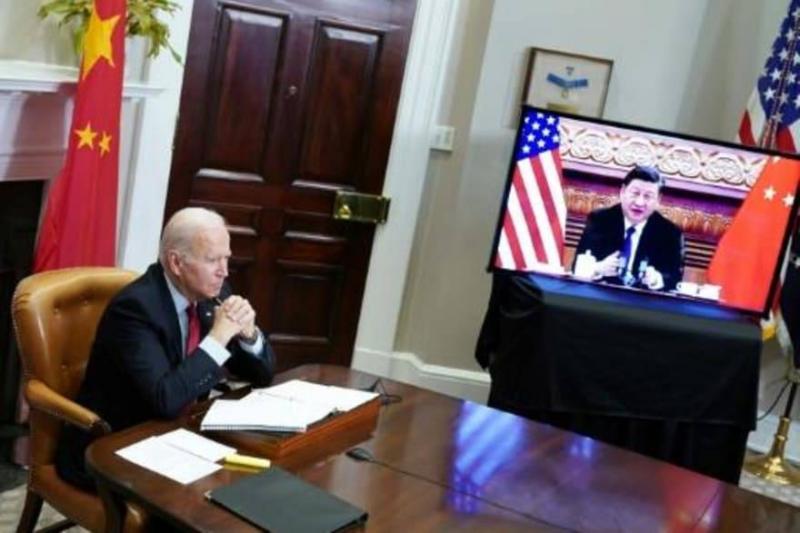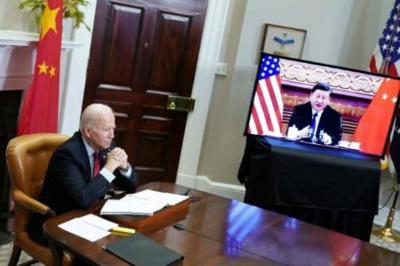U.S. President Joe Biden confirmed on Tuesday that he is not calling for Taiwan's independence in any way, clarifying remarks he made in which he referred to the island as "independent." This statement could have been seen as a departure from his country's recognition of China’s sovereignty over Taiwan.
During a visit to New Hampshire following a virtual summit with Chinese President Xi Jinping, Biden was asked if any progress had been made on the Taiwan issue during the summit, to which he replied, "Yes." He stated, "Yes. We have made it clear that we support the Taiwan Relations Act, and that’s all." The Taiwan Relations Act is legislation passed by the U.S. Congress in 1979 that governs the relationship between the United States, China, and Taiwan. The law requires the U.S. administration to recognize only one China while simultaneously providing Taiwan with necessary weapons for self-defense.
However, in his response, Biden added, "It’s independent. It makes its own decisions," seemingly referring to Taiwan. If the White House hadn't clarified the meaning of this statement, these few words could have provoked China's anger, especially since its president warned Biden during their virtual summit that the pursuit of Taiwan's independence is "playing with fire."
In his clarification, the U.S. president emphasized, "We do not encourage independence. We encourage them (Taiwanese) to do exactly what the Taiwan Act states." He added, "I said that decisions regarding Taiwan must be made by them, not us." Biden also reiterated that his country does not intend to "change" its policy regarding this issue.
Beijing considers Taiwan, which has a population of about 23 million, an integral part of Chinese territory and has vowed to reunify it one day, even by force if necessary. In recent years, Taiwan's fate has become a source of tension between Beijing and Washington. In October, Biden caused a similar stir when he stated that the United States would be willing to intervene if China attacked the island. This vague statement followed a similar comment made by the president in August. In both cases, U.S. diplomacy quickly affirmed that Washington's position on this issue had not changed.
In addition to supporting Taiwan with arms, the United States maintains what it describes as "strategic ambiguity," meaning it does not clearly state whether its forces would intervene to defend the island. In his remarks to reporters on Tuesday, Biden emphasized to his Chinese counterpart that U.S. Navy ships would never enter Chinese territorial waters but would continue to uphold freedom of navigation in the South China Sea and "we will not be intimidated."




